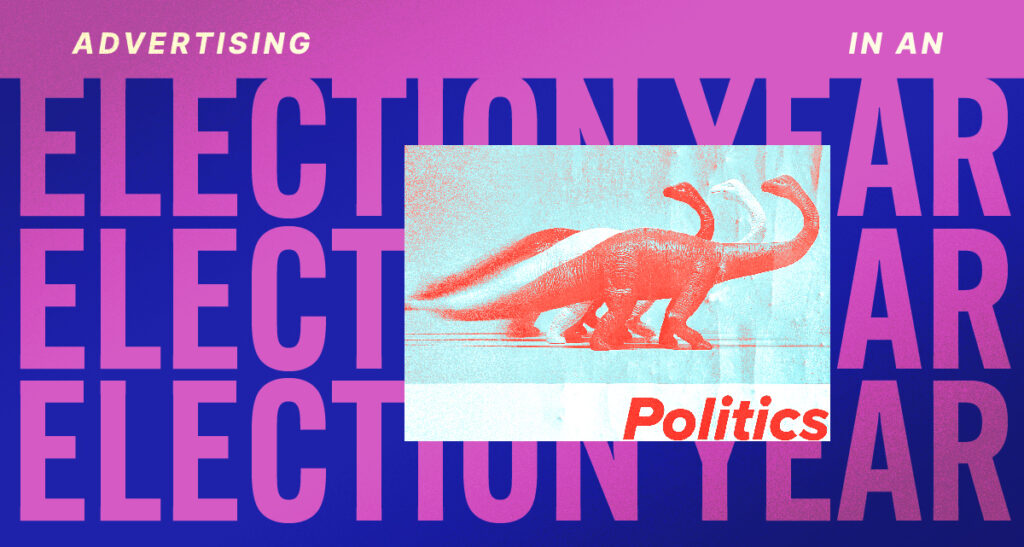As the nation gears up for yet another presidential election, advertisers are bracing for a transformation of the ad landscape that happens every four years.
In 2024 political advertising is anticipated to surge by 31.2% to a staggering $16 billion. All this extra money in the market means advertisers must be even more strategic about decision making to preserve brand awareness in a highly competitive media market. If you’re planning on advertising this summer and fall, here are a few tips to get ahead.
Timing is of the Essence
In any election year, media placements become scarcer and more expensive as political candidates seek to ramp up their campaign advertising. In a presidential election year, that scarcity peaks. Typically, political media spend is concentrated in the 5-6 weeks leading up to Election Day. This is when advertisers will have the most difficulty placing ads at reasonable rates across digital and traditional outlets. Keep this in mind as you plan your campaigns and budgets for the summer and fall. In a presidential election year, planning far in advance is paramount.
Invest Wisely
Given the limited availability of media placements, it is crucial to allocate your budget strategically and to know what is coming. Below are a few recommendations from our media team.
Keep in mind that the likelihood of preempted spots, or the substitution of an advertiser’s spot for an ad by another advertiser who is willing to pay more, greatly increases during an election year. Though the general election will end on November 5, 2024, post-election inventory could still be limited as stations “make good” on those advertising spots that were displaced by political campaigns.
Because inventory is so tight, many broadcasters are limited in the added value they can offer during political windows. When negotiating your ad buy, ask for added-value spots to fall outside of the election timeframe.
If the political window is a key time for your advertising campaign, it may be beneficial to consider additional channels, such as OTT (aka: streaming) where premepts do not occur.
On the digital side, we recommend adding a 15-30 percent buffer to any programmatic bids in October and early November. This proactive approach guarantees that your content continues to be seen on key platforms.
Stay Informed
Regulations around digital advertising are in a state of constant flux, and in an divisive election year, you can expect platforms like Google and Meta to be ramping up their content moderation efforts. Make sure you understand what you can run in an ad and what you can’t to ensure maximum visibility for your placements and to avoid having a campaign pulled over a misunderstood word or phrase.
Transparency is Key
If you’re in charge of buying advertising for your organization, transparently communicate with your higher ups to keep them informed about the challenges of advertising during an election year. Let them know early on that you may need to increase the overall budget across platforms to maintain brand awareness at levels seen in non-election years.
Election years are a whirlwind of political ads, and your colleagues are likely aware of it. They’ll be inundated with hundreds of political ads as the election season gains momentum, just like you are. With this in mind, offer options and make sure everyone involved has realistic expectations.
As the presidential election ushers in a wave in political advertising, make sure your efforts don’t get lost in a sea of campaign ads. Plan ahead, invest wisely and make sure you understand what’s allowed and what is not — then communicate everything transparently to the stakeholders at your organization. Need a little help with it all? We’re here for you. Let’s talk.













